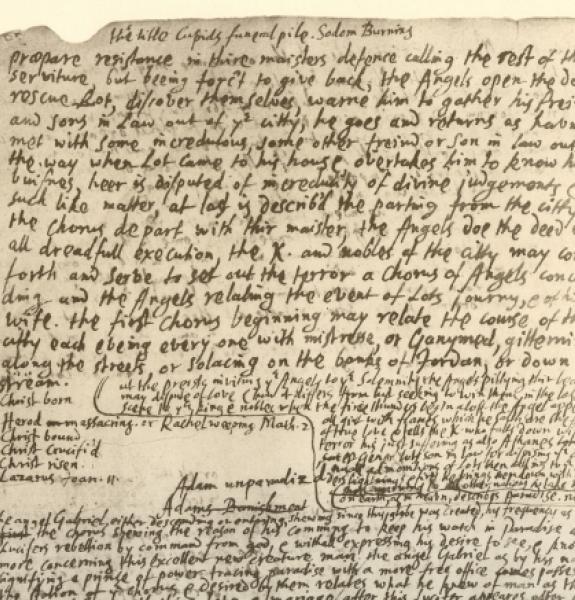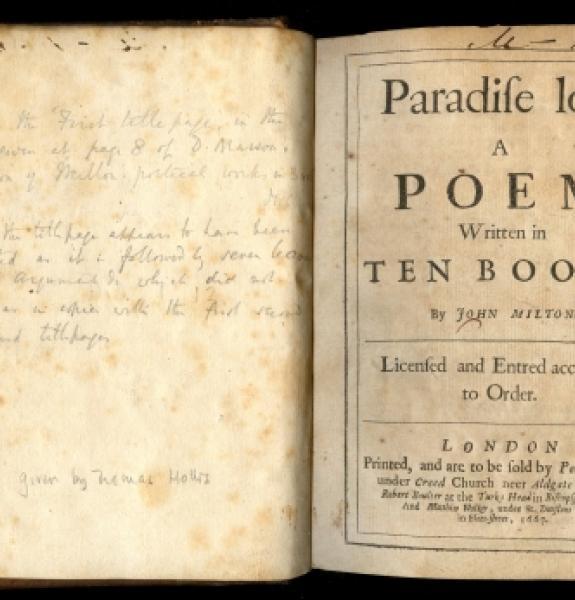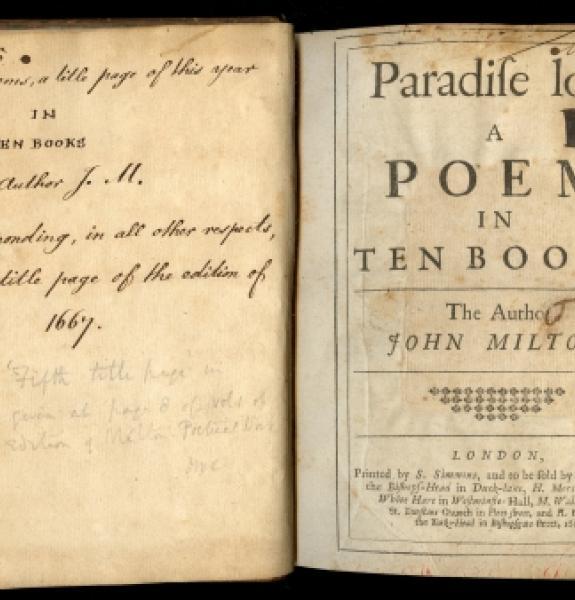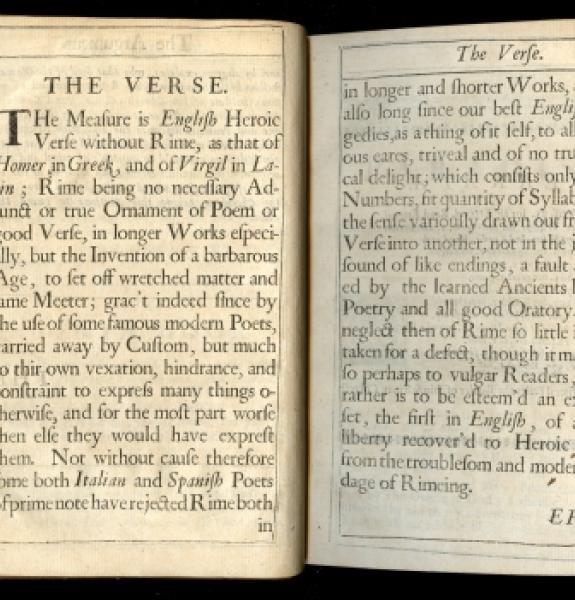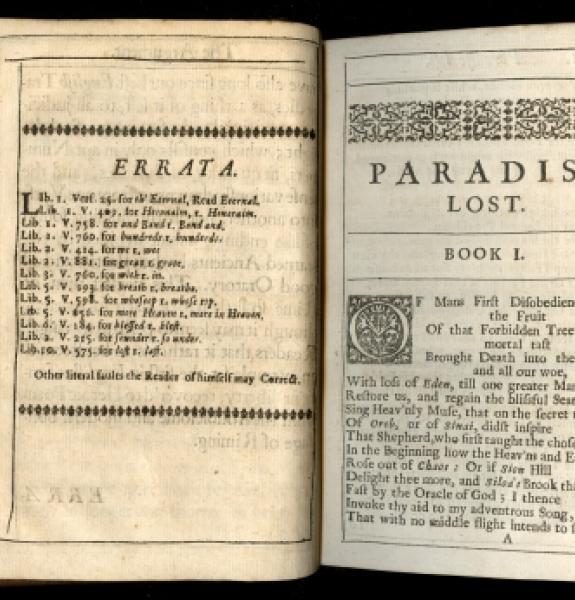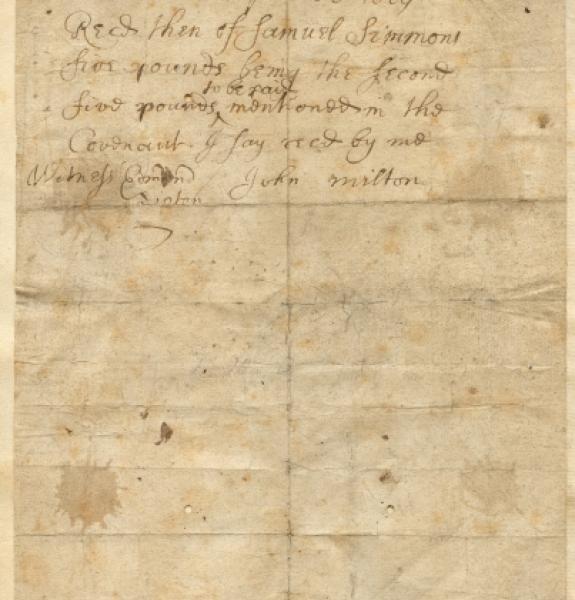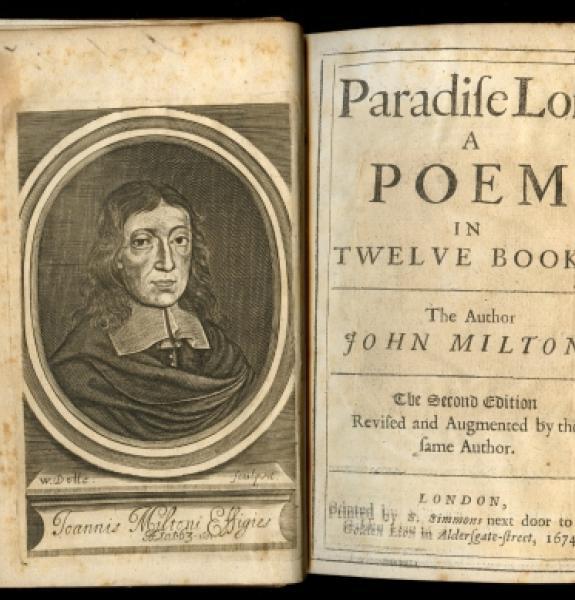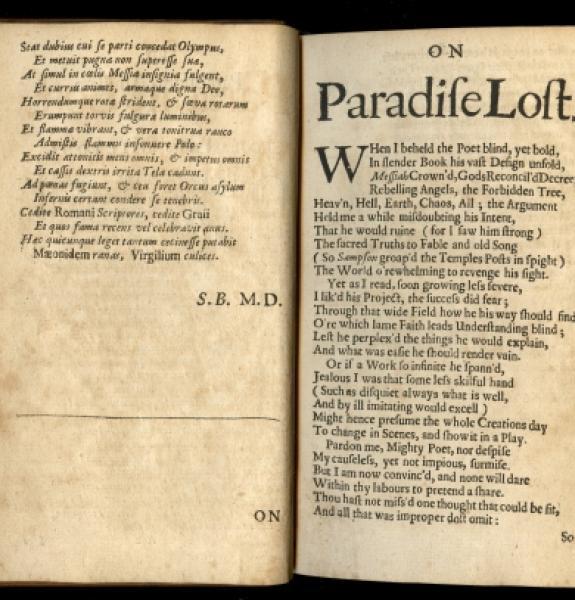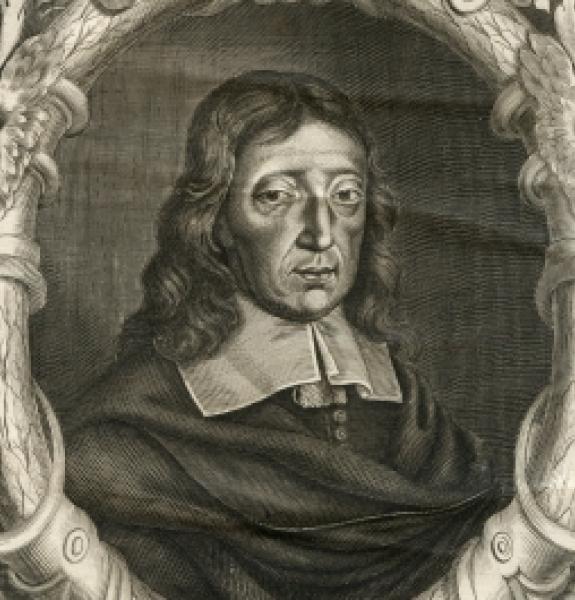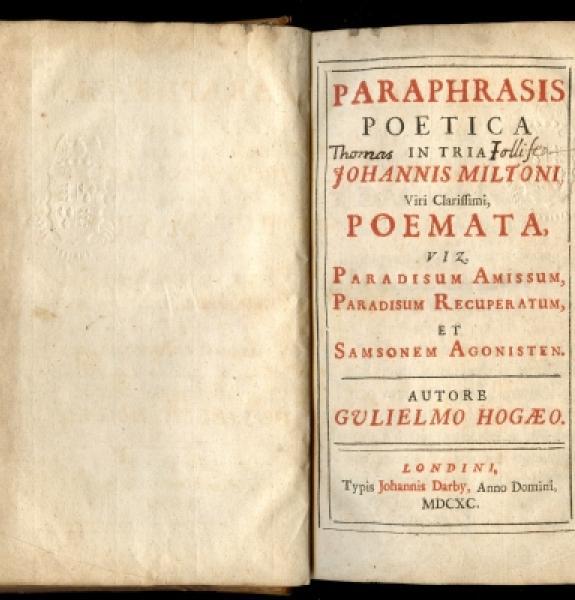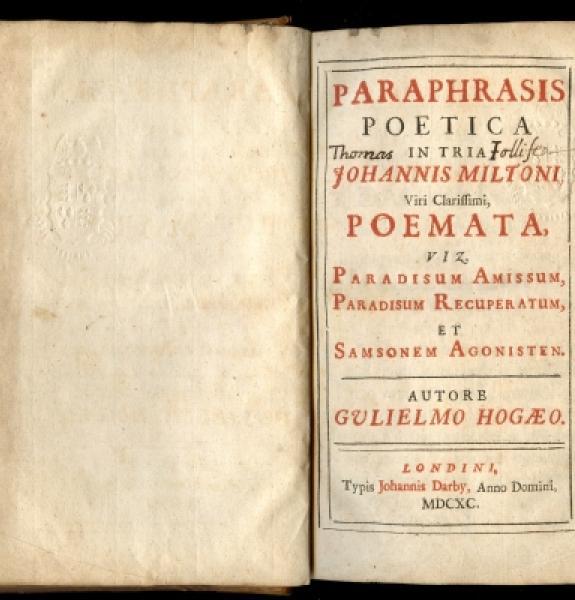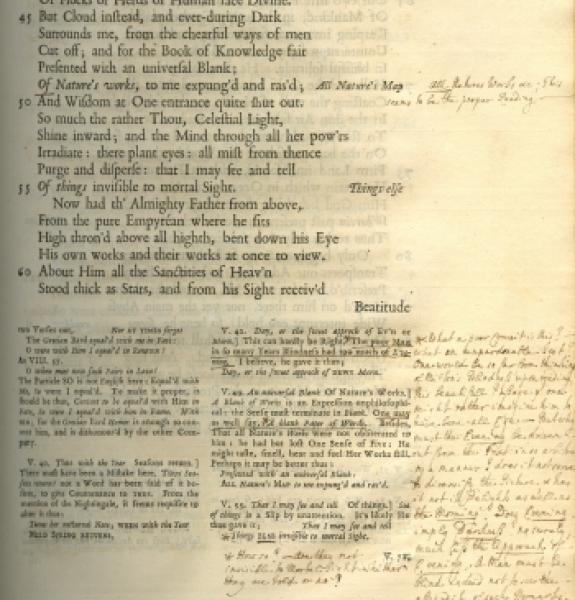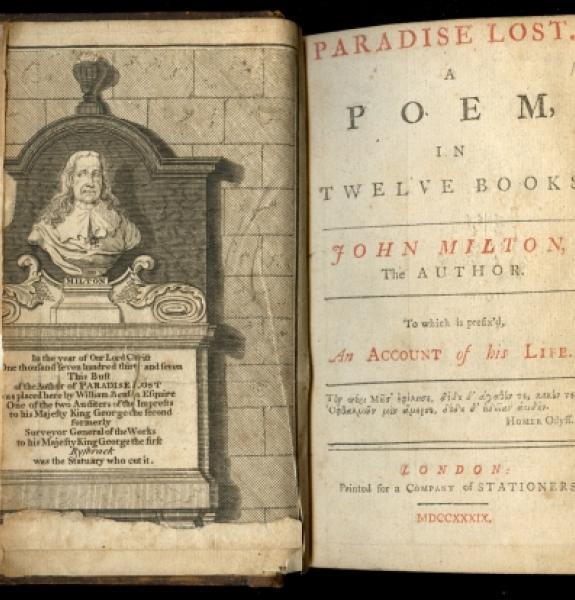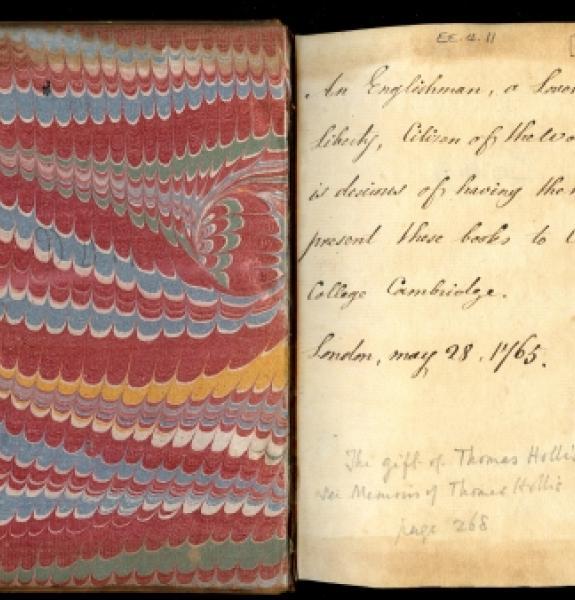‘Of Mans First Disobedience...’
Milton’s masterpiece tells the story of two falls. It opens with Satan and his host of rebel angels, who are caught plummeting into the abyss of Hell. Milton then works back in time through the narrative of Lucifer’s rebellion and the war in heaven, before recounting the creation of Adam, Eve, and their earthly home in Eden. The poem’s climax arrives in Book IX, when Satan in serpent’s form coaxes Eve into eating the fruit of the forbidden tree. On seeing that Eve has sinned, Adam then knowingly joins her by also tasting the fruit. This act of disobedience precipitates their expulsion from Paradise, but not before Adam is shown a vision of human history, culminating in the possibility of redemption offered by Christ’s future sacrifice.
Click on the images below for more details.
Milton first conceived of Paradise Lost in around 1640, which he then imagined as a five-act tragedy titled ‘Adam Unparadiz’d’. He wrote his epic in its current form mostly between 1658 and 1665, a period that spanned the decline of the English Republic, the monarchy’s Restoration in 1660, and the extinction of Milton’s immediate political hopes. It is perhaps unsurprising that, released into this hostile environment, the poem sold slowly at first. However, as its genius gained recognition, Paradise Lost grew in popularity, seeing frequent reprints from 1674 onwards. A series of lavishly illustrated folios and eighteenth-century editions that combined the text with explanatory notes (treatment previously reserved for Classical authors) did much to consolidate the poem’s canonical status.
Milton aimed to write a Christian poem that could stand alongside the great pagan epics of Homer and Virgil. Paradise Lost recreates many of the most conspicuous hallmarks of epic: vivid heroic similes that unfold over several verses; a rhymeless line of great poetic flexibility; a story that begins in medias res (‘in the midst of things’). Yet the poem’s connection to the classical past goes beyond localized questions of technique. For the first time, Milton turns the traditionally martial, pagan form of epic into the vehicle for a Christian theodicy—that is, a justification of God’s ways to man, including the story of mankind’s Fall.
In his Life of Milton, Dr Johnson found Milton, of all poets, the least indebted to his predecessors. Yet Milton has accrued innumerable debts in his turn, from generations of subsequent writers. The Romantics in particular turned to Milton both for his poetry and for his political example. Blake’s genius was sparked in diverse ways by his admiring—and often adversarial—relationship with Milton. Wordsworth begins his sonnet on London, ‘Milton! thou shoulds’t be living at this hour:|England hath need of thee’.

